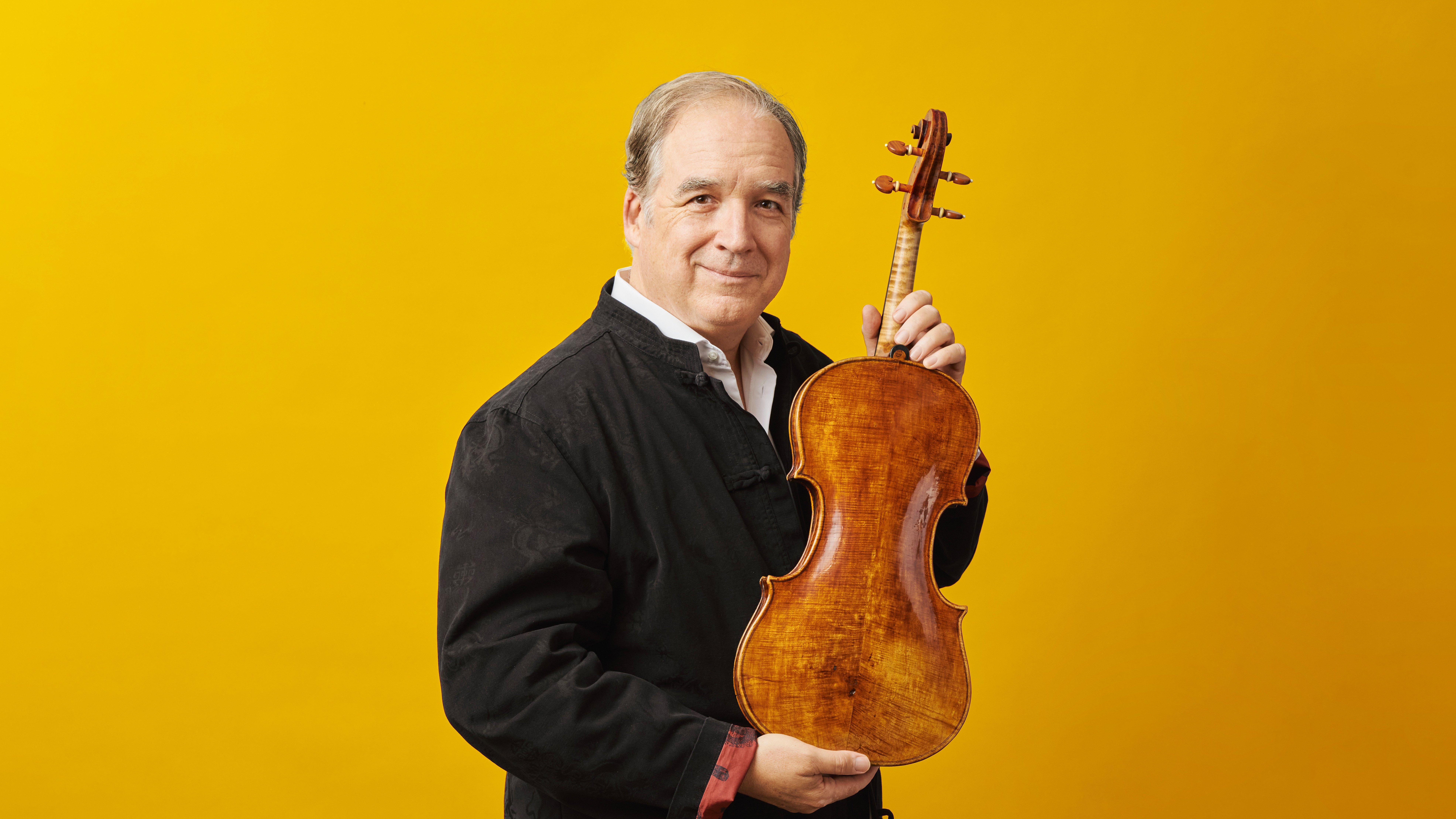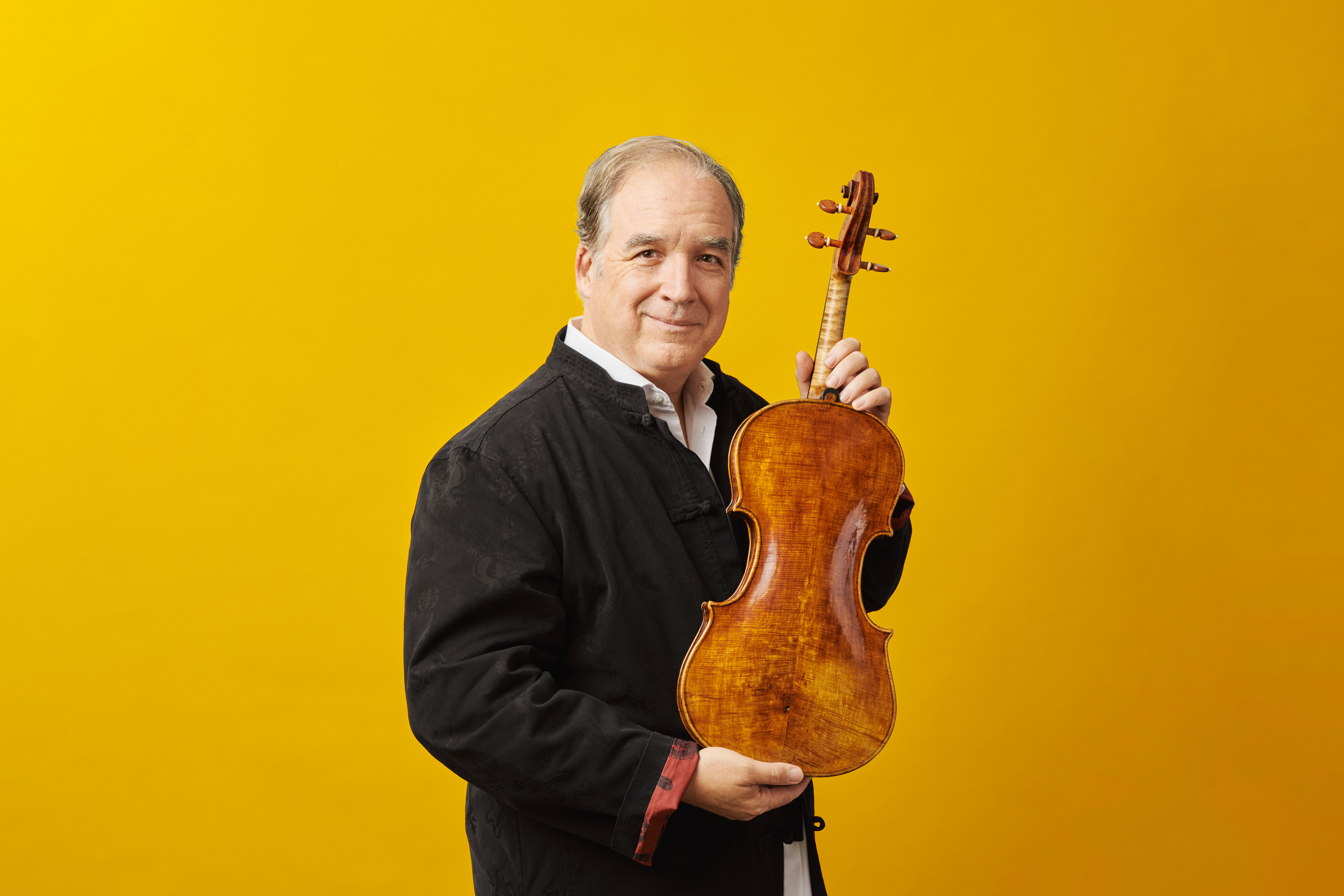
For nearly 30 years, Matthew Hunter has been a member of the Berliner Philharmoniker, but the American-born violist’s time with the orchestra is almost over. During November’s US tour, which was probably his last as an official member, we spoke with Hunter about his unconventional career, his retirement plans, and – in passing – about philosophy.
What does travelling to the US with your German orchestra mean to you as an American?
We are ambassadors for Germany, and we communicate our best, and I’m very proud of that role. Having played in American and Canadian orchestras, I can appreciate our unique musical culture and way of playing, so I’m very aware that we serve as a lighthouse for many. Even though I have lived outside of the US for nearly 35 years, I’m always excited to return to perform. It’s a privilege that confirms music needs no translation and has the power to build bridges; and we channel a little part of that.
How would you describe the differences between American and European approaches to orchestral music-making?
Most significantly, we are a self-governing orchestra, which means that we are in control of our working conditions, and have influence on programming, scheduling, and overall artistic decisions, including choices of new colleagues and conductors. This fosters a personal responsibility for what happens on stage, which I would describe simply as active engagement. This underlies the unique and visible energy of our performances.
What were some highlights of this tour for you?
Performing in Boston’s Symphony Hall was definitely a personal high point. I grew up in western Massachusetts, and I’ve had a lifelong admiration for the Boston Symphony and the hall itself. Last night’s performance of Bruckner’s Symphony No. 5 was particularly meaningful to me. The hall’s acoustics are extraordinary, and were ideal for us; its design is compared with Vienna’s Musikverein and the Concertgebouw in Amsterdam.
And being here in the Boston Symphony Hall felt like coming full circle. One of my earliest musical memories is of attending an Artur Rubinstein recital there with my family. That experience, paired with last night’s performance, creates a beautiful symmetry and feels like two bookends of my career, given the fact that this is my final tour in the US with the orchestra, making it even more poignant.
Why do you find Bruckner’s music particularly compelling?
Bruckner’s music resonates deeply with me. He created a profound spiritual soundscape, influenced by his devout Catholic faith. I feel a deep affinity for his alpine meditations, and the visions he shares of the eternal, of God, or even the awe that we feel when we contemplate nature. As a painter of sound he creates these magnificent landscapes that have an endless horizon. His music achieves stillness through sound.
And you felt that last night at the concert?
The brilliance of Kirill Petrenko’s performance last night was that from the beginning to the end of the symphony, he had a clear, integrated vision of how everything fits together. He challenged us to help him bring this vision to life, and I believe we came closer to achieving it last night. Kirill Petrenko chose tempi and timings that didn’t crowd the hall with over-resonance. There was subtlety and transparency in place of a muting “sound sauce”. Once the initial restlessness of the audience dropped, there was a gratifying total silence, and I felt the complete attention and concentrated listening that is the hallmark of a meaningful performance. At such moments, we feel a sense of bonding and cooperation. No matter what, it’s never just “another day at the office” to see the audience literally lifted to their feet by the music, by the power of what we’ve done on stage.
This is your last official tour with the orchestra to the US. Does that make you sad in a way?
Well, my attitude towards retirement has evolved greatly. Once it seemed like being marched up an Aztec pyramid. But where the pendulum is swinging now, I feel a deep appreciation for the meaning of a full and satisfying career. We are a touring orchestra by design, so in the 30 years we have traveled the world together, I’ve been impacted by so many cultures and countries along this path of discovery. The enormous shared wealth of performing, mentoring, or just listening to my colleagues and our soloists has been the greatest gift.
I know I’ll miss the feeling of being inside that wave of sound that thunders off the stage. Claudio Abbado said that there can be more music in one pianissimo than in all the fortissimos, and I’ll especially miss those hushed, intimate moments. Overall, I hope to preserve the energy of these experiences, to maintain my vitality and keep moving forward, crafting a future as enriching as my past. After the eclipse, the sun does shine brightest.
You also studied philosophy alongside music. Is that coming back into your life now?
Certainly, philosophy is re-entering my life. But for me, philosophy has always been more of an attitude than an academic pursuit. I have used philosophy as a tool to analyse my life at pivotal moments. It helped me decide, for instance, to abandon a career in banking in order to become an artist.
During my studies, I sought advice from great artists and engaged in conversations about life’s purpose, and I would often indirectly ask: “What should I do with my life?” John Quincy Adams once said, “I am a warrior, so that my son may be a merchant, so that his son may be a musician.” There is direction to be taken from this dialectic.
I reached the conclusion that becoming an artist is one of humankind’s greatest challenges. At the same time, it is one of the greatest privileges – can you imagine being able to devote your energy in pursuit of a sound-world ideal? From a philosophical perspective, a life dedicated to art music connects us to the eternal, to the essence behind representation. And that’s adapted from Schopenhauer.
How did that fit into your musical journey?
After graduating from college with an entry job in international banking, I gave a violin recital with the dramatic title, “A Farewell to Music.” Well, I said farewell to banking instead, and made the choice to begin a five-year plan to pursue music. If I didn’t find confirmation within those five years that I could succeed as a musician, I would return to the real world.
Towards the end of that period, I happened to try a viola. I walked into a violin lesson while also carrying a friend’s viola case, and my teacher asked me to unpack it and play something. So I performed the Ysaÿe Ballade, a piece I was studying on the violin, and something clicked. My teacher got up, walked around me, and declared, “Matt, ***damn it, you’re a violist!” I was 27.
And you have found the confirmation you were looking for, I presume?
Winning an international viola competition led to a prominent assistantship at a music conservatory, which I took as the sign I had been waiting for. And within three months of starting that assistantship, I won my first position in a professional orchestra. Then began the second five-year plan, because it wasn’t quite the kind of orchestra that I was aiming for.
At the end of those five years, I won a position in the Canadian National Orchestra. However, not quite satisfied yet, I gave myself yet another five years. After that, I won a position in Berlin. And then I quit. I quit the five-year system (laughs).
I had been studying Soviet history, and they were always making these five-year plans. Maybe that influenced my thinking, or I just felt five years was a realistic amount of time to invest all of my energy. I would suggest this to anyone: take five years, invest all your energy in your dreams, and see what happens.
Many in the audience know you also as a guitar player during performances of Mahler’s 7th symphony. How did that come about?
The guitar has been an intimate companion since childhood. The violin was for business, the guitar was for pleasure. And I’m self-taught, so there are no rules or images of authority with it. And perhaps there’s some release in not having to produce sound with a bow.
In 1997, I happened to be in the room when someone mentioned that the guitarist for the Mahler had cancelled. In a breakthrough moment, I jumped up and said, “I can do that.” By now I’ve played this work with conductors Claudio Abbado, Simon Rattle, Kirill Petrenko, Bernard Haitink and Zubin Mehta.
Did your violin background help with the guitar?
Definitely. My left hand was developed from violin, so transitioning to guitar felt natural. But guitar has its unique challenges. Classical guitar demands exceptional right-hand technique. My left hand is skilled, but my right hand has never quite matched it. I’ve experimented with techniques, but I’m still figuring it out. Maybe that’s a retirement, 5-year plan for that too.
Circling back to the matter of touring. Do you have a favourite tour memory?
There’s one moment that stands out. On October 3, 2001, just a few weeks after 9/11, we went on tour to New York. Security was intense – we even had government-appointed security on the plane with us. When we arrived in Manhattan, the streets were empty. No traffic, no people – just dust-covered buildings and blinking yellow lights, like a post-apocalyptic movie.
At our hotel, all of the staff lined up and applauded as we arrived. It was deeply moving. During the concert, the first concert in all of New York after the attack, we performed Mahler’s Ich bin der Welt abhanden gekommen with Thomas Quasthoff and Claudio Abbado. The audience was audibly emotional, with many people in a state of shock or grief. Even on stage, we couldn’t hold back our tears. It was one of the most powerful moments of my artistic life. And it revealed the true purpose of music – to connect deeply, to console us and unite us, and speak for us even in the darkest of times

Matthew Hunter
Profile of the violist of the Berliner Philharmoniker

Back in the USA
American fans are particularly loyal supporters and followers of the orchestra. This was not always the case. An eventful tour history.

Orchestra history
Discover more than 140 years of history of the Berliner Philharmoniker!